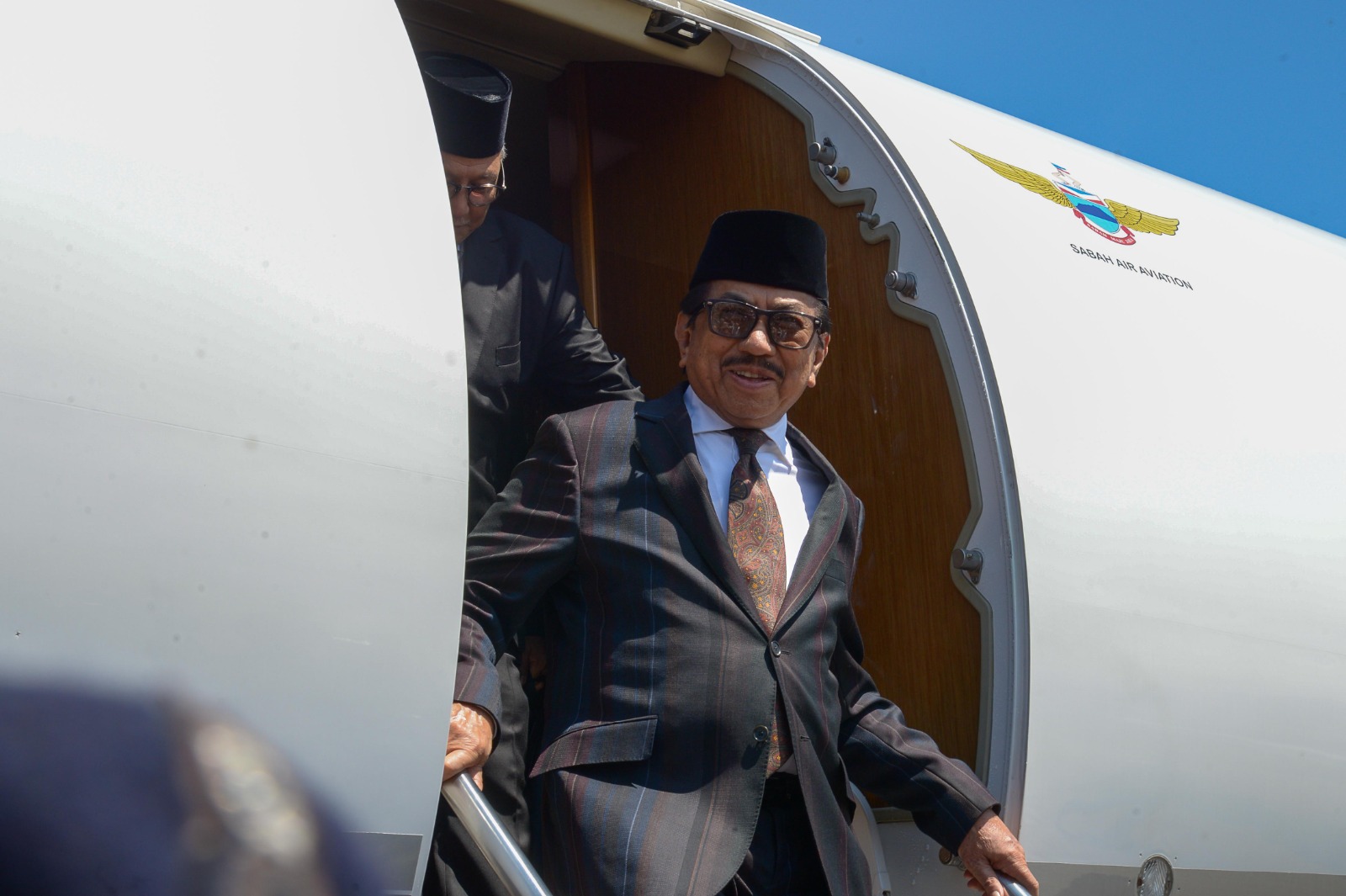KOTA KINABALU – Tun Musa Aman returned to Sabah today to a hero’s welcome despite mounting criticism over his appointment as the 11th Yang di-Pertua Negeri Sabah.
The former Chief Minister arrived at the Kota Kinabalu International Airport (KKIA) Terminal 2, where an estimated 3,500 to 4,000 people gathered in a carnival-like atmosphere to greet him.
The stretch of road leading to the terminal was jammed with vehicles and people marching, shouting “Hidup Musa Aman!” and “Hidup Tun!” A convoy of big bikers added to the scene as they roared in to join the celebration.
Among those in the crowd were Musa’s political supporters, many wearing Umno shirts, some of whom had travelled from Tawau, Sandakan, Keningau, and Beaufort to witness the moment.
Musa had just returned from Kuala Lumpur, where he received his appointment instruments from the Yang di-Pertuan Agong, Sultan Ibrahim, in a formal ceremony at Istana Negara. His supporters hailed his new role as a significant milestone for Sabah, but not everyone was celebrating.
Mandiri – Pusat Pembangunan Rakyat, a local NGO advocating for progressive governance, criticised Musa’s appointment, calling it a step backward for Sabah.

“Sabah remains one of Malaysia’s poorest states despite its natural wealth. During Musa Aman’s 15 years in office, we witnessed systemic cronyism, wasted public funds, and decisions that left ordinary Sabahans behind,” said Mandiri’s director, Wong Kueng Hui, in a statement today.
Mandiri echoed long-standing grievances about Sabah’s underdeveloped infrastructure, poor job opportunities, and persistent poverty. Critics pointed to broken schools, potholed roads, and neglected rural areas as evidence of leadership failure during Musa’s tenure as Chief Minister from 2003 to 2018.
Warisan’s Elopura assemblyman Calvin Chong, in a statement yesterday, warned that Musa’s appointment risked plunging Sabah back into a dark era of corruption and authoritarianism.
He questioned the integrity of appointing individuals with controversial political legacies, citing Musa’s past allegations of corruption, many of which were eventually dropped.
“It has only taken five years to undo the progress Sabahans fought so hard for,” he said, adding that trust in governance is at an all-time low.
Adding to the controversy is Musa’s political legacy. While Musa was once a towering figure in Umno, leading the party in Sabah for years, questions remain about his current status in the party.
There has been no official confirmation that Musa has resigned from Umno, leaving some to speculate on how his political affiliations might influence his role as the ceremonial head of the state.
The 2018 constitutional crisis, in which Musa was briefly reinstated as Chief Minister before being ousted by Datuk Seri Shafie Apdal, remains another blemish on his political record.
Prime Minister Datuk Seri Anwar Ibrahim, who once criticised the dismissal of corruption charges against Musa as emblematic of elite impunity, now faces scrutiny for supporting the appointment.

Despite these controversies, Musa’s arrival today painted a different picture.
Sabah Chief Minister Datuk Seri Hajiji Noor defended his appointment, praising his long experience and pledging that Musa would bring wisdom to his role as Governor. Musa himself expressed his gratitude for the trust placed in him, pledging to serve Sabah impartially.
In Malaysia, the Sabah Governor, officially titled the Yang di-Pertua Negeri Sabah, serves as the ceremonial head of the state. While the role is largely symbolic, it comes with constitutional powers such as appointing the Chief Minister, dissolving the State Assembly, and assenting to bills passed by the legislature.
However, the Governor’s authority is often constrained by constitutional frameworks, and most decisions require the advice of the Chief Minister or Cabinet.
For Musa, the weight of these responsibilities is overshadowed by the polarising legacy of his political career.
Critics like Wong argue that his appointment symbolises the persistence of entrenched power structures in Sabah, while supporters celebrate it as a testament to his enduring influence and contributions to the state.
Musa Aman officially assumes his duties on January 1, 2025, but the divide in public opinion suggests that his tenure as Governor will continue to stir debate.
While his supporters cheer his return, others see it as a reflection of the challenges Sabah faces in moving towards a more progressive and inclusive future. – December 18, 2024


